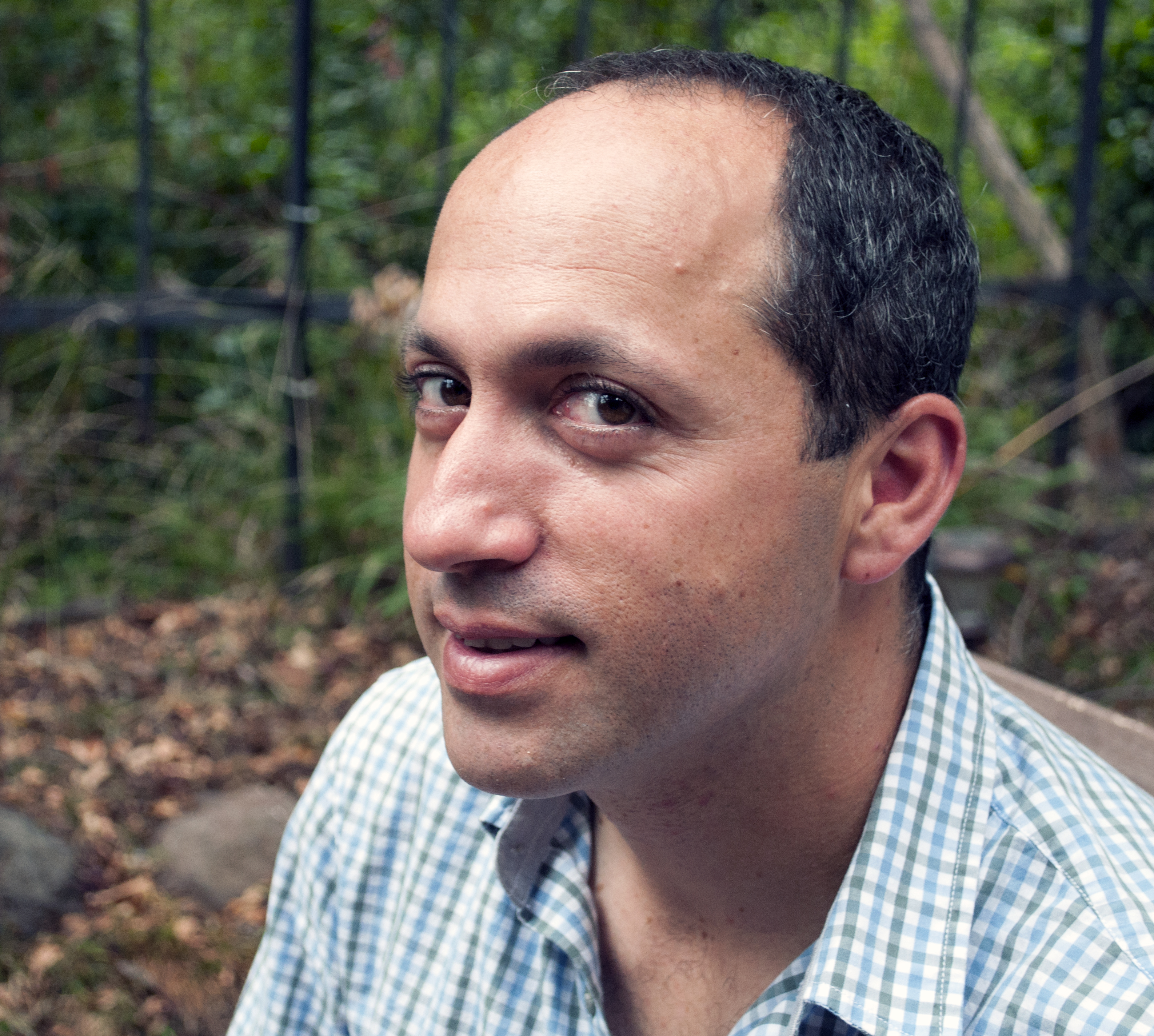Our new book, Salaam, Love: American Muslim Men on Love, Sex & Intimacy, will be released on February 4th. In the lead up to the release, meet our 22 contributors.
Today, meet Mohammed Shamma!

An excerpt from Mohammed’s story, “Echoes”:
In the years following my father’s death I slowly realized that my devotion to family and religion, like my own blood supply, was limited. After isha was over and my mother and brother were asleep, I would stare into my father’s bathroom mirror at the signs of puberty arriving on my skin, and hear them in my voice, praying for manhood to come soon. By the eighth grade, I thought I was ready. I prayed to Allah that a girl like Stephanie, Sarah, or Angela would notice me and that my mother wouldn’t learn about the semi-innocent games of truth or dare, or the middle school parties with make-out sessions to the sounds of mix tapes.
During my freshman year of high school I was lucky enough to have friends with cars—Muslim friends who kept my mother blind to the binge drinking and sleepovers. She eventually caught on and tried to hide her pain. Her angelic son was dead and all that was left was a hormonal halfling heaving under the covers with heathen girls. She tried to rein me back with a fire-and-brimstone version of Islam that she, the former Baptist from pure-white West Texas cotton country, could relate to. I tried to placate her, but I would never be as good as my father. I was a native Texan with an Arab name—the son of a dead Muslim survived by his proselyte.
To read more, order Salaam, Love today!
Q&A with Mohammed
Tell us about yourself
I’m an Egyptian-American from Houston, Texas, currently living in Berkeley, California. I’m a software developer by day and a writer/illustrator by night. My current project is a graphic story inspired by the religion, art and languages of ancient Egypt. The story is titled “The Flight of Horace” and is about a man who attempts suicide by jumping off a bridge and discovers that he has somehow survived, but has lost his soul. Read more about it at www.flightofhorace.com
Why were you drawn to this project?
I’d recently turned 40 and had three separate health related events that convinced me I must take stock of my of life. I started writing again, picking up where I left off nearly 15 years ago on a story about my parents’ pen-pal relationship. I was talking about it with Shanthi Sekaran who then told me about the Love, Inshallah call for stories from American Muslim men.
So I purchased a copy of Love, Inshallah and, within the first few pages, I couldn’t put it down. I immediately felt a sincere admiration for the women who unveiled their personal lives on its pages. I’m also very secular and was proud that this anthology was about Muslims but not branded with dogma or judgment. I saw an opportunity to give a voice to those of us who live with the imprint of Islam in their lives, the “legacy” Muslim.
What was the most challenging part of sharing your story?
I was filled with anger when I learned I had the same heart condition that killed my father. I was angry with him for passing it down to me and for leaving me as a child. I was still processing this anger as I started writing my story. It was so intense that it was clouding my ability to write about love and romance. I didn’t have a complete story to share. All I had written were several vignettes of my life without anything that bound them together. As the deadline drew closer I began to panic. Then one night, as I was preparing questions for my cardiologist, I came across an article that detailed the five phases of the heartbeat. I was immediately inspired by the structure of the human heartbeat and began arranging the stories together in that context. As I was intensely typing away, I began to cry. A wall of tears hit me as my anger turned into forgiveness and my heart and my father ceased being my enemies and transformed into radiant guiding spirits. I no longer felt crippled by my disease, but empowered by it.
If there’s one thing you hope that readers will take away from your story, what is it?
I hope my story will help readers cherish the moments they have with their family, friends and loved ones. I also hope that my story helps those who are currently coping with loss or adversity. They can start again. They can have a positive outlook with the right amount of love, forgiveness and a good heart.
Anything else?
I’d like to thank my wife Heidi Saleh for giving me her real phone number when we first met and for continuing to be an invaluable source of help and support. I’d also like to thank Kareem and Leila, two wonderful children that brighten my day no matter how dark or cold it is. I’d also like to thank my father, Samir Mohammed Shamma (1936-1981) for teaching me strength and sensitivity.
Finally, I’d like to thank my mother, Letha Faye Shamma (1939-1997). She had always wanted to be a writer, but sacrificed her own goals for the good of her family. She constantly reminded me about the importance of literature and storytelling and I constantly ignored her. I’m absolutely certain she would have submitted a story to Love, Inshallah had she been alive to tell it. When I learned that there was a call for men’s stories, the hairs literally stood up on the back of my neck, in a good way. I wanted to tell my story. I wanted to tell it for her. I owe her a lifetime of gratitude for teaching me that dreaming is truly a blessing.











